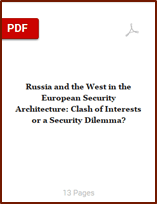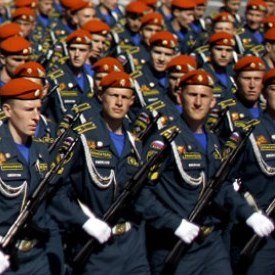(Chapter from OSCE Yearbook 2015) Russia’s approach towards relations with Ukraine since early 2014 heralds a major shift in Russian foreign policy. It has crossed a Rubicon that it will be difficult – though not impossible – to uncross. Indeed, Russian officials have themselves stated on more than one occasion that Russia’s relationship with Europe and the United States has undergone an irreversible change and will not come back to the pre-2014 status quo.
Are we looking at a largely inadvertent escalation sparked by each side misreading the other’s intentions, or does the conflict in and around Ukraine result from a clash of interests, with each side determined to win and prepared to pay the necessary price? This is not an idle question. Our response has profound implications for the process of conflict resolution – both within Ukraine and between Russia and the West. A security dilemma type of conflict can usually be resolved by confidence-building measures. In such cases, the contradictions are usually not difficult to overcome. In contrast to that, reconciling opposed interests requires a substantive bargain. In the absence of such a bargain, the balance of forces will need to change in order for the controversy to subside. Before that happens, recurrent spikes of tension are to be expected, at times resulting in open hostilities.
See the chapter @ academia.edu
OSCE Yearbook 2015 @ NOMOS











